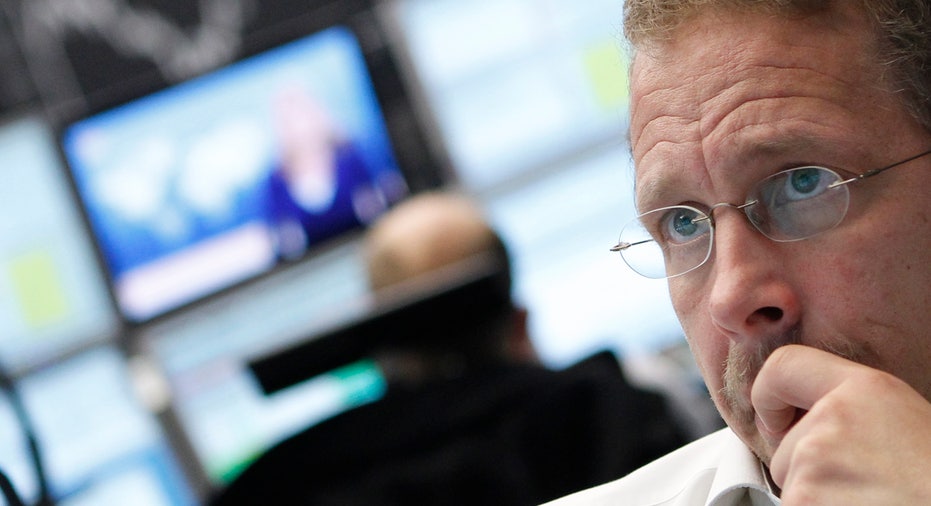Debt Worries, Mixed Data Weigh on European Shares

The euro and European shares weakened on Wednesday as fears about the prospect of a Greek debt default overwhelmed positive news on the outlook for Germany, the region's largest economy.
German business sentiment rose for the third month in a row in January, beating expectations and offering further evidence that Europe's largest economy may avoid a recession seen as inevitable for much of the rest of the region.
"The widely-spread fear that the euro zone's biggest economy could now also be caught by the crisis virus has been soothed," Carsten Brzeski, an economist at ING in Brussels said.
The euro initially rose about 0.2 percent to its day's high of around $1.3052 after the Munich-based Ifo think tank released its index, but selling pressure quickly brought it back under the $1.30 level to around $1.2990 and further away from Tuesday's three-week high of $1.3063.
"Uncertainty over the Greek debt talks and disappointment that there has still been no deal is spoiling the party for the euro," said Audrey Childe-Freeman, EMEA head of currency strategy at JP Morgan Private Bank.
"So despite the good IFO numbers, the euro is not able to break past $1.3080 which is a good resistance level," she said.
Recession fears elsewhere in the euro zone region gained some traction when Britain reported it's economy had contracted more than expected in the final three months of 2011, as factory and utilities output slumped. Four out of the UK's top five export markets are in the euro zone.
TELECOMS HIT SHARES
Share market reaction to the economic data was muted with the pan-European FTSEurofirst 300 index falling 0.6 percent to 1,038.70, weighed down by the technology sector despite strong earnings from U.S. electronics giant Apple late on Tuesday.
The falls were led by a 14 percent fall in the share price of world No.1 mobile gear maker Ericsson after it reported that profits had halved in the fourth quarter as the global economic slowdown hit demand for new equipment.
The STOXX Europe Technology index was down 2.6 percent.
German manufacturing conglomerate Siemens also saw its shares fall for a second successive day after reporting weak results as the euro zone crisis takes its toll on consumer demand.
FED RATE OUTLOOK AWAITED
The dollar index, which measures the U.S. currency against six other key currencies, hovered near a three-week low just below 80 ahead of a statement expected from the Federal Reserve's key policy making committee later on Wednesday.
The Fed is due to release a new long-term interest-rate projection that could signal an extended period of ultra-low interest rates at the end of its first meeting of 2012 later on Wednesday.
Recent gains in global stocks and the euro, despite inconclusive talks over a bailout for Greece, combined with the outlook for a prolonged period of low U.S. interest rates, may strengthen downward pressure on the dollar.
"The risk is the Fed could be more dovish than what the market is expecting, in which case you might see the dollar pull back," Geoff Kendrick, currency strategist at Nomura said.
Greek debt restructuring talks, which have dominated market sentiment all week, are currently at an impasse as private creditors consider their next step. Euro zone finance ministers have rejected the bondholders' offer to write down the nominal value of their debt by 50 percent in return for new longer-term bonds paying an interest rate of 4 percent.
But as the stalemate continues, the focus is shifting steadily to Portugal with Portuguese credit default swap prices hitting new highs on Wednesday although the cost of insuring most other euro zone government debt against default was little changed. Portuguese government 10-year bond yields were also up about 25 basis points to 14.75 percent.
In Asia the yen fell but the Nikkei index gained after Japan reported its first trade deficit in over 30 years, which prompted investors to pare back on long positions in the Japanese currency.
The rally in Japan and in Australia helped offset weakness in Europe to leave the MSCI world equity index little changed at around 315.



















